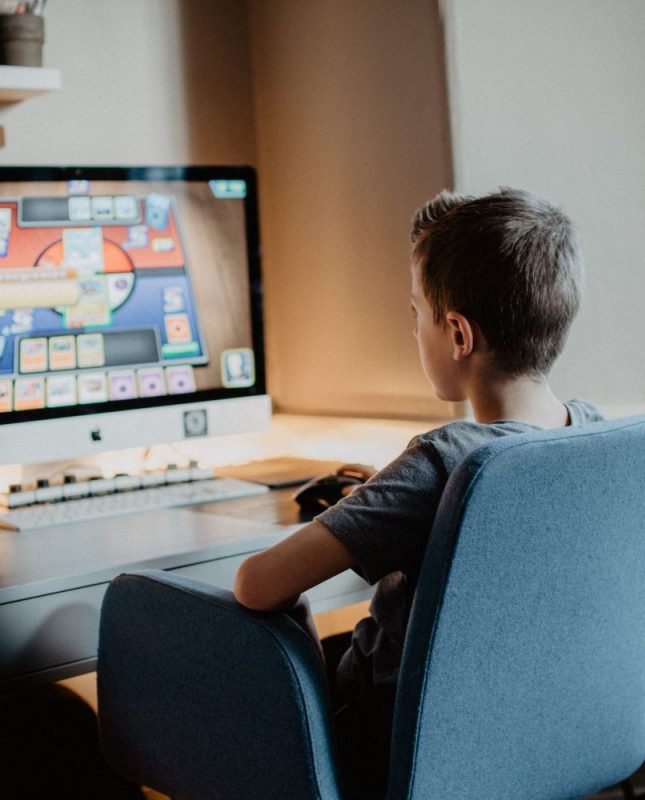05 Jul Social Media – Protecting your child from strangers online

Children as young as four years old are now playing online video games and participating in online activity that even just a few years ago would have been cause for great alarm among parents. As the younger culture is surrounded by technology, it has become an integral part of their lives. It is now possible for them to encounter “strangers” even in the safe confines of their own home. There are, of course, different parental safeguards that can be utilized on the computer or smart phone, but children have always found ways around the barriers.
I know, from the many underage clients I’ve worked with, that going online is not something that can be prevented if a child is sufficiently motivated. Clients, as young as eight years old, have told me that they either use a friend’s computer/phone, have a secret backup their parents don’t know about, or even know their parents’ passwords so they can change the parental settings at will.
It’s easy to see why this transformation has taken place. Kids growing up with parents who are always on their phones, texting, emailing, talking with friends, or playing games themselves will focus their own children’s attention on the ‘need’ to have their own phone. The four-year-old mentioned earlier was brought in by her parents because she was being defiant and refusing to go to bed at night if she didn’t have her phone with her. Obviously, there was a major lack of appropriate parenting in this case. The parents gave her a phone because she was constantly badgering them about getting one. They felt it was easier the give in than say no. This, of course, created more problems. We were able to work through the problem by getting the parents off their own phones a little more and spending more quality time with their daughter.
But, what about the possibility of older children encountering strangers online? We have, for years, advised children to be aware of “stranger danger” and to never talk to strangers. This made sense when it referred to seeing or meeting someone in person that might present a danger to the child. But, what about online where you have no idea who you are really talking to or playing a game with through one of the online gaming sites? How do you protect your child from experiencing sexual predators, cyberbullying, mobile phone addiction, or other hurtful content?
The truth is, you really can’t protect them 24/7 with a 100% degree of certainty.
You can, however, teach them the appropriate responses if they feel uncomfortable or threatened in any way. Depending upon the child’s age, level of maturity, and interest in online activities, a parent can make sure that their child is as fully informed about what to do to feel safe. You can easily do an online search for one of the many different guides detailing strategies for protecting your child, but the reality is you have to actually sit down and have a candid conversation about how best to respond.
Listening to your child’s questions, researching them if you don’t know the answer, making sure your child understands what you’re saying, teaching them how to respond and empowering them in the process. This helps build their confidence and their competence in handling potential situations, but you still have to pay attention to the online activity your children are engaging in until you feel confident that they have the maturity to deal with it.
Some important areas to cover in your conversation should include, but is not limited to, the following:
• The need for secure passwords and never giving them to anyone, including their friends. You can help them do this because you need to know what it is yourself.
• Protecting their privacy by not giving out any personal information to anyone online. Be specific about what they cannot share like full name, address, phone numbers, email, photos, school name, or name of friends.
• The purpose and use of internet safety tools like SafeSearch, NetNanny, and Qustodio, which is for their protection and your peace of mind.
• Set clear expectations for what sites are acceptable for them to visit, and better yet, make a list of sites and keep it next to the computer. That way they know ahead of time and can always choose from the list of safe sites.
• Talk about what to do if they stumble upon inappropriate content. Let them know that they can always come talk to you no matter what. It means, of course, that you have to be receptive and neutral regardless of what they bring you. This is one of the hardest things for some parents to do. It is important, though, because if children they will make a parent angry or lose computer privileges, you will never hear about anything they do.
This is, by no means, an exhaustive list. It is, however, intended to initiate the conversation so you can assess where your child is in his or her understanding of safe online usage. You should, of course, always be monitoring your children in their online activity.
For more in-depth guidance on parenting, Click to get your personal copy of The One Minute Therapist at Amazon!



No Comments